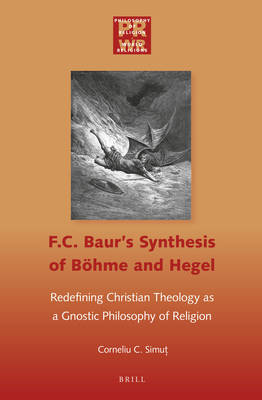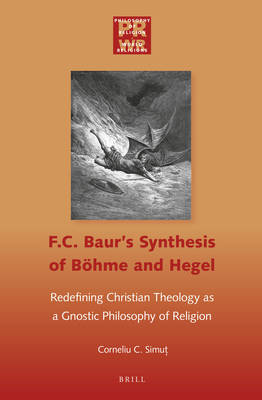
Je cadeautjes zeker op tijd in huis hebben voor de feestdagen? Kom langs in onze winkels en vind het perfecte geschenk!
- Afhalen na 1 uur in een winkel met voorraad
- Gratis thuislevering in België vanaf € 30
- Ruim aanbod met 7 miljoen producten
Je cadeautjes zeker op tijd in huis hebben voor de feestdagen? Kom langs in onze winkels en vind het perfecte geschenk!
- Afhalen na 1 uur in een winkel met voorraad
- Gratis thuislevering in België vanaf € 30
- Ruim aanbod met 7 miljoen producten
Zoeken
F. C. Baur's Synthesis of Böhme and Hegel
Redefining Christian Theology as a Gnostic Philosophy of Religion
Corneliu Simut
€ 296,45
+ 592 punten
Omschrijving
In this book, Professor Simuț shows how Christian theology started to be understood as a Gnostic philosophy of religion in the thought of the 19th-century scholar F. C. Baur. Although Baur was seen traditionally as a theologian and biblical exegete, Simuț argues that he was in fact a philosopher of religion, and it was his philosophical reading of Christian theology that informed his biblical preoccupations. Specifically, Baur's perspective on Christian theology was heavily influenced by Jakob Böhme's esoteric theosophy and Hegel's religious philosophy in some key issues such as creation, Lucifer, dualism and the connection between spirit and matter coupled with that between philosophy and religion.
Specificaties
Betrokkenen
- Auteur(s):
- Uitgeverij:
Inhoud
- Aantal bladzijden:
- 372
- Taal:
- Engels
- Reeks:
- Reeksnummer:
- nr. 4
Eigenschappen
- Productcode (EAN):
- 9789004275201
- Verschijningsdatum:
- 16/10/2014
- Uitvoering:
- Hardcover
- Formaat:
- Genaaid
- Afmetingen:
- 157 mm x 239 mm
- Gewicht:
- 703 g

Alleen bij Standaard Boekhandel
+ 592 punten op je klantenkaart van Standaard Boekhandel
Beoordelingen
We publiceren alleen reviews die voldoen aan de voorwaarden voor reviews. Bekijk onze voorwaarden voor reviews.









